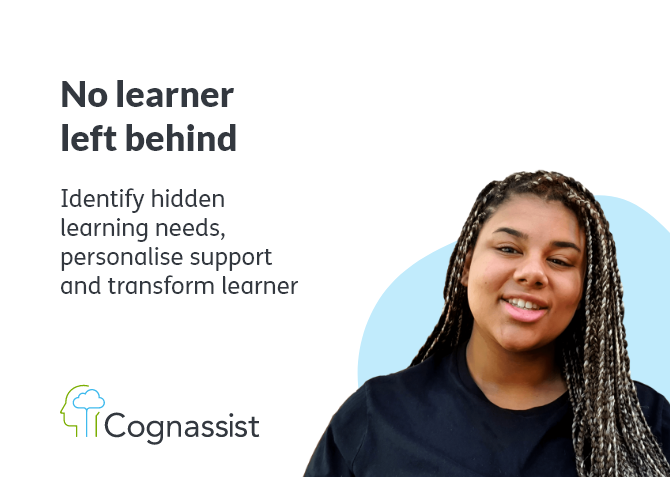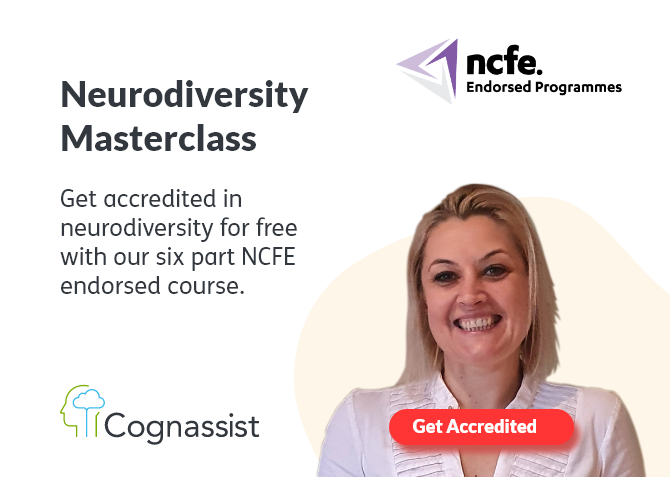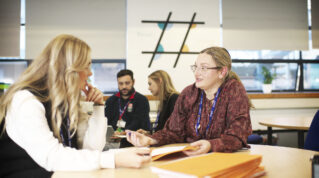After this last year, more people are aware that just because we’re in this together, doesn’t mean we all have the same experience or opportunities. How can we know what someone else is experiencing unless we try to understand it and how can we create equal opportunities if we don’t know the barriers that stand in their way?
Inclusivity is about tackling the challenges that many of us face to create a society where no one is left behind. These challenges are multifaceted and often quite personal. And there is nothing more personal than our mind.
The human brain is the most complex structure in the known universe. It makes us who we are, and it stores all the knowledge and experiences we gain over a lifetime. But how much do you really know about it? And how much can an understanding of the brain change the education sector for the better?
One in five people leave education with no basic qualifications*
Each of us thinks and learns differently.
For many learners, their experience of education is marked by negativity and underachievement. But low attainment doesn’t mean low aspirations.
We can build a more positive experience of education for many people. Identifying their strengths and areas where they might need support through cognitive assessment. Identifying hidden learning needs and providing personalised support that builds confidence and a new-found love of learning.

We know we must act now. We know we can’t ignore the growing inequalities.
But where should we start? How do we know what works?
Educators are not psychologists – not often anyways. It’s hard to identify learners who require support and it’s easy to misinterpret the behaviour of struggling learners as something problematic rather than symptomatic.
Using an evidence-based approach helps to give learners more control in the learning process and gives staff the training to really understand and empower learners at all levels of education.
We can’t use a one size fits all approach to learning and education.
Organisations need to be more flexible and the sector can do more to support a diverse range of learners. But it’s a team effort.
One in three people are neurodiverse and could benefit from learning support*
That’s roughly 30 percent of the working-age population.
This evidence comes from over 70,000 cognitive assessments with post-16 learners. Cognitive research labs around the world would kill for this size of data set!
But does your provision and identification rate reflect this number? Simply relying on learners to self-disclose their needs is not enough.
And identifying learning needs can be transformative for learners.
Plus, it helps educators to become more understanding and effective in their roles too.
Your provisions make the difference between a “good” and “outstanding” Ofsted inspection, between completion and non-completion, and it changes the lives of people who would otherwise have been denied opportunities.
You don’t have to be a neuropsychologist to support neurodiverse learners
Understanding cognition and neurodiversity doesn’t require a PhD.
Often, something as simple as a conversation with the learner can help us to discover if they have had any previous support in school or feel like they struggle with certain things.
Most of the processing in our brain is beyond our conscious control so we might not notice the impact it has on our abilities to navigate education or working environments.
Someone can be perfectly capable of performing well at work but struggle within the education environment. Which leads people to think they’re bad at learning.
But this doesn’t reflect what we know about the brain. We learn new information every day of our lives, whether we realise it or not. And we all have different abilities.
Identifying the things that you struggle with and the coping mechanisms you use in your daily life can help to start the conversations with learners around their support needs without making them feel uncomfortable.
The journey to embracing neurodiversity is one we take together.
But supporting neurodiversity is not an optional extra
We hate to get all high and mighty on you. But all organisations have a legal duty to make reasonable adjustments for disabled learners, and most organisations would extend this support to learners who may not have a formal diagnosis but still experience day to day difficulties.
We can do more to break down barriers to learning and ensure no learner is at a significant disadvantage to their peers.
Each reasonable adjustment is a small but necessary step towards inclusivity in education, and they are a core part of providing quality education.
A commitment to being a diverse organisation must include neurodiversity and a robust support provision tailored to these learners.
And we want to give you the roadmap to get there.

Get accredited in Neurodiversity for FREE
Look, we’ll be honest. Cognassist is a business. We sell our cognitive assessment and learning support services to education providers throughout the UK and internationally. But this is bigger than us. There’s almost no way to say this without coming across as some cheesy marketing pitch.
So let’s drop everything.
Currently I’m writing this while it’s pitch dark outside and well-past my finishing time. No joke. And the only reason I can come up with for this state of affairs is that I care. And if you’re reading this, then we’re obviously in the same boat – you probably work late all the time too.
I think it’s easy to feel frustrated in this sector, to feel like change isn’t happening quick enough or staff don’t have the resources to do everything they’d like.
But there is a real drive to change. And we want to help, whether you have access to a cognitive assessment tool or not. All of the content at Cognassist is free and it’s free for a reason.
We’ve created whitepapers, handbooks, how to guides, and now a Neurodiversity Masterclass. An online course fully endorsed by the NCFE that counts towards your continuing personal development.
Hopefully it helps you and your organisation to embrace neurodiversity and build better outcomes for your learners. That’s our whole mission.
Hope to see you there.
From myself, Cognassist’s Content Manager, Helen, and the team.
Visit cognassist.com/masterclass

















Your thoughts